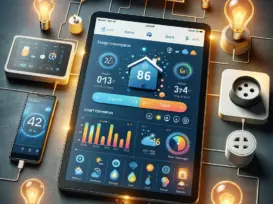Grus Home Energy - energy conservation techniques
Effective Energy Conservation Techniques for a Sustainable Future
Energy conservation is crucial for both preserving the environment and cutting down on utility costs. By implementing effective energy conservation techniques, individuals and businesses can reduce their carbon footprint and contribute to a sustainable future. Here are some practical strategies to conserve energy in everyday life:
1. Energy-Efficient Lighting
Switching to energy-efficient lighting options such as LED bulbs can significantly reduce electricity consumption. LEDs use up to 80% less energy than traditional incandescent bulbs and last longer, making them a cost-effective choice for lighting your home or office.
2. Unplug Electronics When Not in Use
Many electronic devices consume energy even when they are turned off but still plugged in. This phenomenon, known as “phantom energy,” can be avoided by unplugging devices or using power strips to cut off power completely when not in use.
3. Maintain Your HVAC System
Regular maintenance of your heating, ventilation, and air conditioning (HVAC) system can improve its efficiency and reduce energy consumption. Clean or replace filters as recommended, seal ducts, and schedule professional tune-ups to ensure optimal performance.
4. Use Programmable Thermostats
Programmable thermostats allow you to set specific temperatures for different times of the day, helping you conserve energy when heating or cooling your home. Adjusting the temperature by just a few degrees can lead to significant savings on your energy bills.
5. Seal Air Leaks
Air leaks around windows, doors, and other openings in your home can lead to energy waste as your HVAC system works harder to maintain a comfortable temperature. Seal gaps with weatherstripping or caulking to prevent heat loss and improve energy efficiency.
6. Opt for Energy Star Appliances
When shopping for new appliances, look for the Energy Star label, indicating that the product meets strict energy efficiency standards. Energy-efficient appliances consume less energy and can help you save money on your electricity bills in the long run.
7. Practice Energy-Saving Habits
Simple changes in your daily routine, such as turning off lights when leaving a room, using natural light during the day, and washing clothes in cold water, can add up to significant energy savings over time. Encourage your family members or coworkers to adopt these energy-saving habits as well.
By incorporating these energy conservation techniques into your lifestyle, you can not only reduce your environmental impact but also enjoy savings on your energy bills. Conserving energy is a collective effort that starts with individual actions and can lead to a more sustainable future for all.
Blog, Energy Savings & Cost Reduction , May 17, 2024 , efficiency housing, Electricity bill, energy audit, energy conservation techniques, Energy Consumption, energy efficient home designs, energy efficient homes, energy saving tips, home automations, home energy audit, Smart Home Automation, Smart Home Energy Management, Smart Home Security Systems
©2025 All Rights Reserved. Grus IoT Co.,Ltd.
